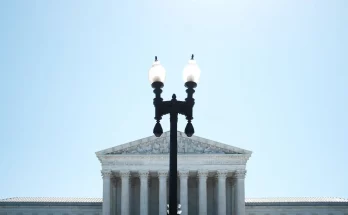What state are we in?
Like the cat in Schrödinger’s famous quantum thought experiment we can’t know whether we are dead or alive as we await the writing of definitive history. Using markets as the measure, our recovery from 2008 is spectacular. However, looking at people and politics it appears the crisis has rumbled on perhaps even gathering momentum. Our once-assured sense of self, as a collective of western liberal democracies, has been critically unnerved. Are we zombie nations?
Most agree that 2008 was caused by outrageous, massive and uncontrolled financial market shenanigans that we did not understand. Truth is we still don’t really get what happened and only a small elite of investment bankers and hedge fund managers understand how our financialised economies operate.
“We are taking a long time to realise the harm we are inflicting upon ourselves.”
Ground zero for 2008’s global collapse was the gargantuan eurodollar market. It was a mega crisis of money and liquidity generated by a relatively small credit problem. If you aren’t in finance you probably don’t know what the eurodollar market is. Nor did policymakers and central bankers. Pre-2008 central bankers thought eurodollars were the same as US dollars and effectively controlled by US monetary policy. Doh!
The eurodollar market is a myriad of IOUs between financial institutions. The IOUs are denominated and accounted for in US dollars to keep track of the value of transactions and that means a tiny smidgeon of actual US dollars are used as collateral backing in the system (along with other premier currencies). These eurodollar IOUs then trade at massive scale and velocity around the world with minimal dependence upon, or relation to, official monetary policy.
Eurodollar markets are the world of shadow banks – off-balance sheet and offshore assets, mainly “legitimate” and distinct from offshore havens. It’s maybe easiest to think of eurodollars as a sort of crowd-sourced virtual currency that dwarfs all official currencies and operates independent of them. Pre-2008 the Fed or ECB did not pull the strings as there were no strings just intricate unregulated heuristically based customs.
The name eurodollar and the tenuous link through collateral to real US dollars is where the confusion starts. Let’s clear our minds of this confusion by replacing the term eurodollar with disneybean to remove any sense of official or “real” money.
The pre-2008 disneybean market was a chaotic but stable anarchic system operating very effectively without intervention or control. Today, it’s a messy, less efficient and dynamic hybrid combining remnants of the old disneybean system with fragmented interloping regulations and the influence and interference of central banks with their novel monetary policies.
“Today’s bankers are not the frontier homesteaders of the past but the same buccaneering spirit lived in them pre-2008 and made a lot happen.”
The issue with this hybrid is that it lacks buccaneering dynamism of the unfettered disneybean market. You can quibble about the underlying quality of our growth but be clear that disneybean suppression weakens our economic mojo in our fully financialised economies. We are taking a long time to realise the harm we are inflicting upon ourselves.
It’s very hard to love disneybean markets and find positives but we should, from a self-interest perspective, at least try.
So let’s step back to the dynamic emerging market that was 19th century US. Old global money was fully controlled by conservative elites. Massive east-west migration was underway but the eastern seaboard banks were not keen to take part in this risky adventure. So towns and communities made their own banks and currencies with a smidgeon of real collateral propping up all these ersatz money IOUs.
There were many mishaps along the way and panics were common as IOU pyramids collapsed or as elite collateral drained away to safety at the first whiff of trouble. The echo of this frontier financial past live on in the US as the thousands of independent local banks.
Today’s bankers are not the frontier homesteaders of the past but the same buccaneering spirit lived in them pre-2008 and made a lot happen. Above all it was the freewheeling disneybean markets that facilitated great growth and development, including emerging markets.
“Enter the vandals – Trump, Putin, Xi Jinping’s, Salvini, the Visegrád leaders. The vandals simply pursue what they see as their self-interest with no time for globalist grandstanding.”
Now we’re in a zombie state – how do we break free? The “globalist” choice is to fashion a global alternative to disneybean markets or reanimate their unruly dynamism. A middle regulated road does not work. In light of 2008’s trauma the progressive impulse is the former but it’s entirely fanciful. Building an alternative to disneybeans that supports today’s global trade would be the biggest international collaboration ever tried. It ain’t going to happen. However, there’s no desire to fire up the disneybean market either so it’s zombie paralysis.
Enter the vandals – Trump, Putin, Xi Jinping’s, Salvini, the Visegrád leaders. The vandals simply pursue what they see as their self-interest with no time for globalist grandstanding.
Undoubtedly they are nationalists and some of their views are distasteful to cosseted and progressive westerners like me. However, in a fading disneybean world they possess political and economic action plans that their opponents lack.
MAGA, tariffs, re-shoring industry and freeing the US financial sector’s mojo from regulation is smart when faced with global zombification. However, the US’s relative retreat from globalisation is it’s deathknell as the global financial and economic supremo.
The end of dollar hegemony and the mega deficit and import consumption economics it propels is probably good geopolitical and economic news for the US. However, the ramifications for less robust western nations will be negative. What hubris to believe we don’t need the US’s cooperation when we have all lived under the shelter provided by its relatively benign dollar and military.
“Resource-light European economies may be very vulnerable to this changing of the financial guard as China will set rules and pricing that suit it best.”
China is the nation set to win the geopolitical battle for economic and financial dominance in the next decade. It has played the global “free-trade” system to its massive advantage. Its domination of global economic flows of trade and commodities position it to start calling the financial shots in future too.
China has taken the hugely significant step of launching Renminbi settled commodity futures, most notably in oil. It’s assiduously preparing for a world whereby China is also the dominant financial player. Resource-light European economies may be very vulnerable to this changing of the financial guard as China will set rules and pricing that suit it best.
What will replace the disneybean market in a Sinocentric world? Probably the highly flexible disneybean market. It will simply transition over time to favour Chinese collateral and rules and be reinvigorated with a sino-mojo. What does that mean for the UK?
Access to capital, markets and resources will require much greater strategic planning. A “progressive” UK plan would be to ensure access to food and energy though greater self-sufficiency meaning renewables, fracking and more nuclear.
The upside? The disneybean market is dominated by The City of London. The UK would need to keep The City freewheeling and help shift its focus onto China.
When it’s finally time to open Schrodinger’s box to check whether we’re alive or dead let’s hope we have not dismembered our financial sector, the UK’s global economic superpower. Otherwise, we will not even be a zombie nation, just a defunct one like many before us in history.



